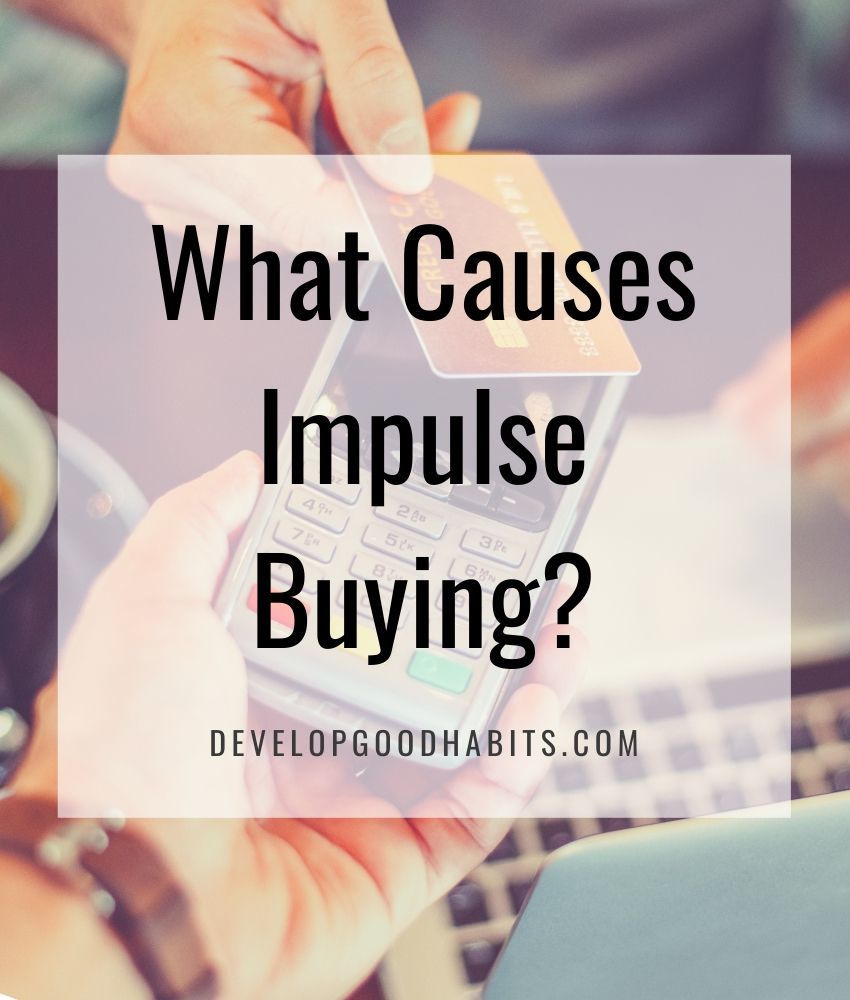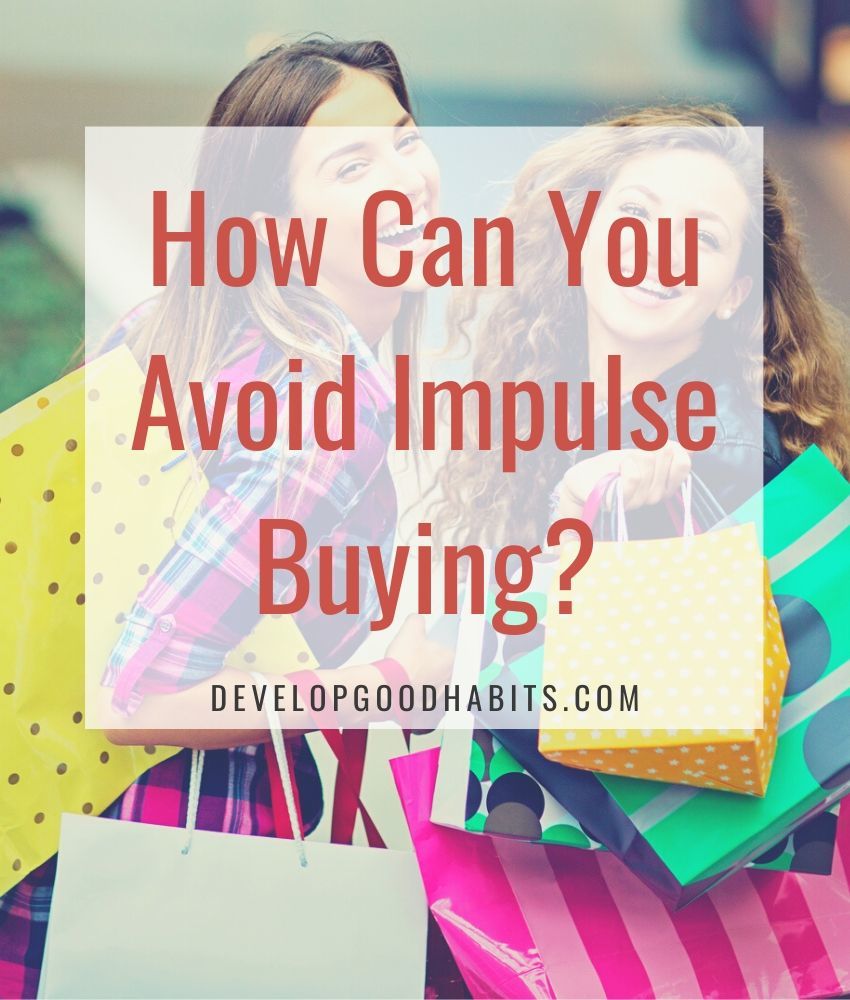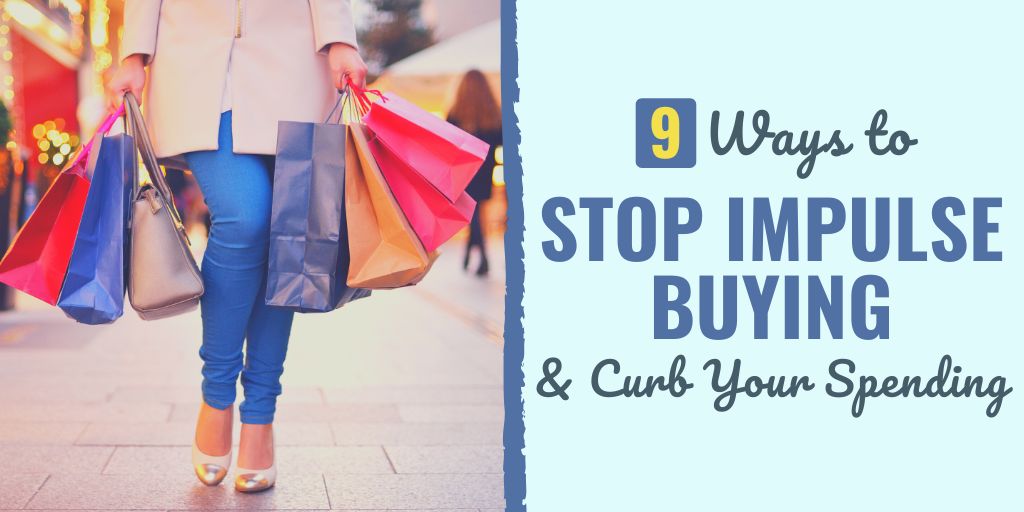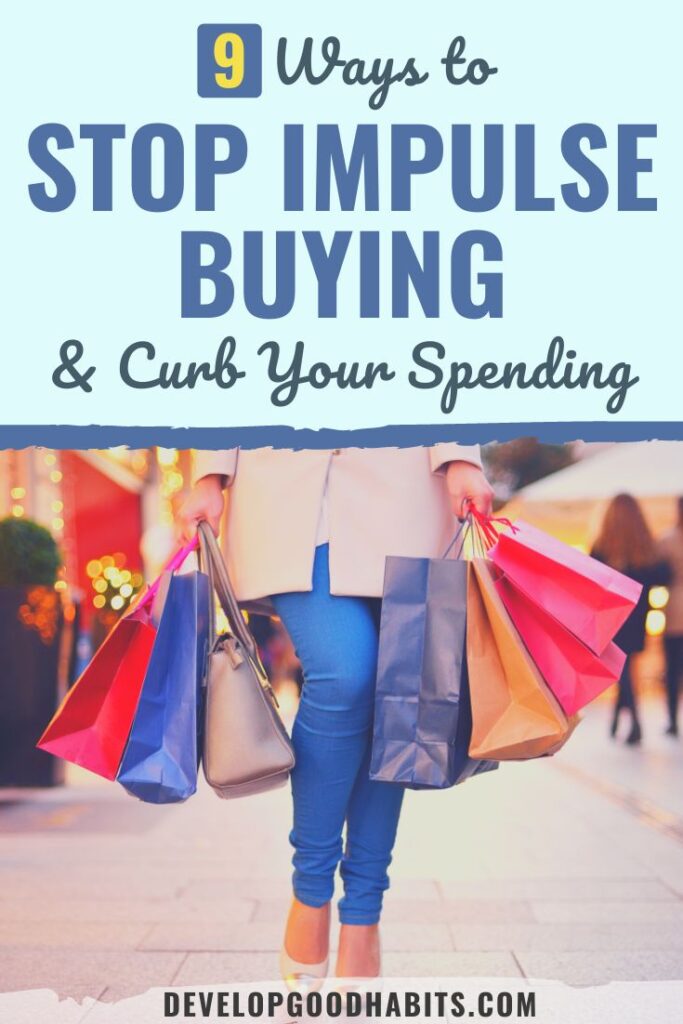We've all been there.
You see something in a store you want and get a momentary thrill as you consider buying it.
You can't wait to get home with your new item and try it out. You may even consider all of the positive changes it could make in your life.
But this is not something you need or intend to buy.
The impulse buy is a weakness that many succumb to. No matter how frugal you tend to be, sometimes it is difficult to resist making an impulse purchase. (Here are 50 frugal living tips to make your life easier.)
Giving in to impulse buying is not only hard on your wallet in the short term, but the habit prevents you from developing good financial practices in the long term.
Knowing your impulse buying tendencies and learning how to address the problem will help you make better financial decisions.
While this is not to say that you cannot treat yourself occasionally, it is essential to be mindful of your budget and your “needs” versus your “wants.”
What is Impulse Buying?
Impulse buying started to garner the attention of researchers in the 1950s and continues to be studied today.
While there are several impulse purchases, they all center around a consumer's exposure to stimuli in the store and their train of thought while shopping.
Someone may be experiencing certain emotions, such as happiness or stress, and then be motivated by marketing materials in a store to buy a product or service that caters to their current emotion.
People do not often consider the consequences of their near-future purchases before making an impulse buy and are typically prompted by an impulse to act.
This unplanned decision to purchase something is called an impulse buy, and those who tend to make these types of decisions are called “impulse buyers.“
(Side note: Another positive way to improve your life is to read and learn something new every day. A great tool to do this is to join over 1 million others and start your day with the latest FREE, informative news from this website.)
What Causes Impulse Buying?
The love of buying new things or a shopping addiction
Many people experience a temporary high when they acquire something new and feel excited as they can use their new item. People are fascinated with novelty, and experiencing new things can release dopamine in the brain, causing people to feel good.
Even the anticipation of buying something can make a person feel good. As you walk around the store feeling excited about buying something, you don't want that excitement to go away, so you end up purchasing the item whether you need it or not.
LEARN: The Cash Envelope System. A simple method to decrease impulse buying and keep your budget in check.
Fear of missing out (FOMO)
If everyone else buys something that has just hit the shelves, you will likely want to follow suit. People want to have similar positive experiences that their friends have, which often leads them to make purchases they would not otherwise make.
Additionally, if you find something in a store that you really like, you may feel motivated to look through every aisle in case there is something else that interests you.
You have a fear of missing out on the perfect item, so you continue to look around to make sure there is nothing else that you may absolutely need.
This form of FOMO exposes you to products you would not have otherwise walked by or looked at, increasing your chances of purchasing impulsively.
You have biases
People want to learn and experience things for themselves. Sure, it might be interesting to hear about a friend's experience with the latest and greatest technology, but often, people want to have that hands-on experience to learn what it is like.
The idea of vicarious ownership is another reason why people tend to buy on impulse. When someone becomes emotionally connected to a product, it changes the way they perceive that product in their mind.
They are likely to start thinking about the product as if it were their own, making it even more difficult to refrain from buying it.

You want to save money.
You have probably found yourself in a situation where you see something in a store that is a great deal, but you don't necessarily need it.
You feel like you could save some money in the long run by buying it just in case, but the reality is that it will probably just sit around your house and gather dust.
For example, say you see a designer outfit that was once over $1,000 but is 75% off now, and it seems like a great deal. You try the outfit on, and it is too small, and you don't love the color, but it is such a great deal! If you buy this now, you have saved so much money from the original price!
However, this outfit will probably sit in your closet when you get home and realize you don't even like it.
While you may be saving money when you buy a deeply discounted product that you need, you are just wasting money if you won't actually use the product or don't need it.
You want to feel good.
Impulse buyers are typically always looking for something that will make them happy and may buy things to improve their mood.
It is common to believe marketing tactics that a product will help you feel good or improve your life in some way. Of course, we all want to feel good but take a minute to consider whether this product is really able to do that job.
Everyone wants to experience pleasure, and shopping can be fun as you imagine owning the products in a store. Once that pleasure is experienced, people are more likely to buy the products they see, so the feelings of pleasure continue.
Why is Impulse Buying a Problem?
If you follow a budget like most people do, impulse buying will disrupt your budget and ruin any plans you have for saving money.
Without proper planning for purchases, you are using money you initially intended to spend somewhere else—and using it to buy something you don't necessarily need. This may leave you with little to no money to buy your necessities.
Furthermore, impulse buying prevents you from creating good and lasting financial habits. If you teach yourself how to save and be conservative with your money at a young age, those habits will carry on with you throughout life and allow you to save money for larger planned purchases.
Impulse buyers are not likely to consider the possible consequences of their spending. It feels better for them to get what they want now and not worry about the details later.
Impulse buyers are often victims of the “What the Hell!” effect. Learn what it is and the 5 simple strategies you can use to overcome this negative mindset by watching the video below:
How Can You Avoid Impulse Buying?
1. Create a 30-day waiting list for big purchases.
If you see something that you want to buy, write down the product and the name of the store and put it away in a drawer or in your car.
After one month, if you are still thinking about the product and feel it would benefit you, go ahead and buy it. If you are no longer interested in the product in a month, consider yourself smart for holding back on the purchase because you didn't need the item.
2. Avoid going to shopping areas (except for necessities).
Don't use shopping as a pastime if you are bored or looking for a hobby. If you surround yourself with temptations of things you may want to buy, you're likely to give into that urge and purchase something you don't need.
Instead, spend your time in places you can enjoy but do not involve retail.
3. Find free ways to reward yourself.
You may often feel like you want to treat yourself for achieving a goal or accomplishing something great by buying a present. Find other ways to reward yourself that don't cost money but are equally effective.
4. Avoid visiting online shopping websites.
Online shopping is dangerous because you can see one item after the next very quickly. Also, online retailers target their marketing toward products you have purchased in the past, hoping you will want to buy a similar product or the same product again.
If you have something you need, go to the store and pick it up or try it on to make sure it is precisely what you are looking for.
5. Be mindful of your reaction to impulse buying.
When you have purchased things on impulse before, how did it make you feel? Did the item keep you happy for a long time, or was it a short-lived rush of happiness that maybe even resulted in some feelings of regret?
Think about your reaction to impulse buying, both short-term and long-term, and consider whether those feelings are worth the purchase.
If you want to get better at handling your money, here are the best personal finance and investing podcasts you can listen to.

6. Always have a list and a plan for your purchases.
If something is not on your predetermined list, do not buy it. It is that simple.
Create a strict list before you go shopping that includes only the things that you need. Plan your route through the stores to get these items so you do not walk past other things that may be tempting but that you do not need.
Want to learn how to improve your financial situation? Check out these 22 Best Personal Finance Books to get started.
7. Avoid using credit cards.
Using credit cards can be dangerous because you may develop an “I'll worry about it later” mindset.
The problem is, when “later” comes, you will probably regret spending the money because you will have to come up with the cash to pay off your purchase. This is likely to disrupt your budget.
8. Do your research before a purchase.
If you buy something you like in the store, there is a good chance it will not be exactly what you were looking for.
Especially if you are making a big purchase, do your research first and try out products before committing to the one you want to buy. This will help prevent buyer's remorse or fighting a store's return policy.
9. Remember your goals.
Whether your goals are financial or otherwise, keep them in mind before wasting money.
Perhaps you are trying to save a certain amount of money in a savings account, or you want to plan a trip across the country but can't afford it. Think about these goals and remember that your small impulse purchases add up to a lot of money and can prevent you from meeting them.
Feeling the Urge to Buy Something?
Be conscious of how your body reacts when you want to buy something. Is there something else that doesn't have to do with the possibility of owning this product that you can fix in some other way?
Identifying your motivations for impulse buying and determining if these motivators affect you can help you save money. Of course, everyone acts on impulse now and then, and a modest level of buying things that you don't need can be innocuous.
Taking impulse buying to an extreme may lead to financial debt and overall unhappiness. Because of this, it is best to know the warning signs that impulse buying may be affecting your life.
If you spend money without really thinking about why you are spending it or even what you are purchasing, it may indicate that you have an impulse-buying problem.
Similarly, if you find comfort in shopping or find it very enjoyable to come home with bags of new things, you may buy things for the wrong reason, such as a way to experience pleasure.
Final Thoughts on Impulse Buying
Ultimately, the best way to determine if you are buying something impulsively is to ask yourself if you planned to purchase the item or are making a last-minute decision.
If you can put the product back on the shelf without buying it, you are helping yourself by saving money and reducing the amount of junk in your house.
If you can turn down purchasing a product, you will likely be happier in the long run. Doing this will allow you to save more money and become a more intelligent, more conscious consumer.
If you need some inspiration to curb your impulse spending, check out these blog posts:
- 15 Awesome Finance Quote Pictures from Pinterest
- 9 Ways to Develop a Wealthy Mindset for Your Future
- How to Cut Emotional Spending and Avoid Impulse Purchases
- 89 Money Quotes and Sayings About Saving and Making Money
- 11 Free Printable Expense Trackers to Monitor Your Daily Budget
Finally, if you want another positive way to improve your life, then read and learn something new every day. A great tool to do this is to join over 1 million others and start your day with the latest FREE, informative news from this website.


